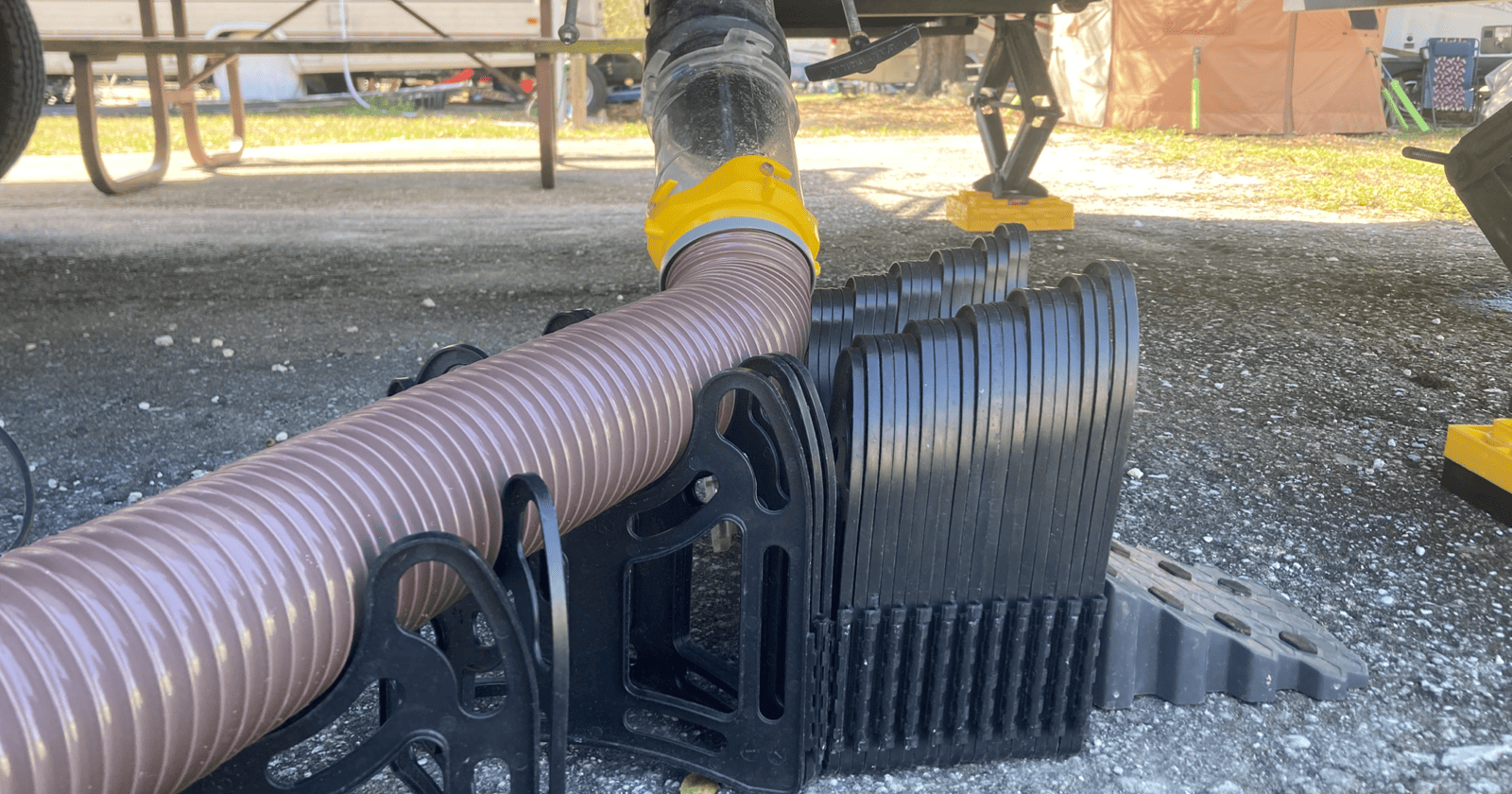There’s an RV out there for everyone! From small pop-up folding trailers to multi-million dollar bus conversions, almost 10 million RVs are traveling the American highways. So let’s discuss some of the financing options out there so you can get an RV loan and make your RV dream possible.
How Does an RV Loan Work?
RV loan financing share similar features to both car loans and mortgages. They rely heavily on your credit and verification to pay on collateral (the RV itself). They also can be stretched out for many years and have tax advantages.
RV Loan Options
Most RV loans are financed by RV dealerships, banks, and credit unions. RVs can be considered primary or secondary homes so lenders can offer loan periods that can stretch out between 5 and 20 years. Interest rates can be as low as 3.99% or as high as 35.99%. Usually, a down payment of 10-20% down is asked for.
Like most loans, your credit score, personal assets, verifiable income, and ability to pay are always looked at when lenders are reviewing your loan application. Using an online RV loan calculator or loan charts are always recommended giving you an idea of where your monthly payment can be.
RV Depreciation
As the saying goes, “RVs depreciate like a rock.” As soon as you drive off the sales lot, your RV can lose up to 30% of its value.
Like cars, the longer you have and use it, the lower the value of your coach. When you consider financing your RV, many people end up owing more on their RV loan than the value of their RV. This can become an issue if you are looking to trade your existing RV or selling it.
Tips When Buying
#1 – Don’t Pay Sticker
RV dealers, like any other business, need to make money off of their products. Some dealers inflate their sticker prices up to 30% of their actual price. Experts recommend that you haggle your sales price. Your sales representative and their managers will work with any reasonable offer.
To help you determine what a good price is, there are many online websites that advertise RVs on the market. Websites like RV Trader, RV.com, or RVT.com can show you what many different dealers and private sellers are selling their coaches for.
#2 – Know Your Credit Score
Looking into your credit score is very helpful to you. When applying for RV financing, your beacon score is a major factor. Even if you have less than good credit, it can be possible to still secure your loan.
#3 – Shop Around for an RV Loan
Many people rely on the dealer to secure their loan. This isn’t a bad thing, but keep in mind that the dealership receives money from the lender for every loan application that the bank approves.
Another option is that you can shop around for financing. The first one you find may not be the best loan for you. Each lender has different rates. Speak with a lending expert for more details about this. It could save you hundreds of dollars.
#4 – Keep It Affordable
Your RV should be a source of enjoyment and relaxation. Avoid high monthly payments by applying for longer term payment structures. By paying them off earlier, you could save yourself hundreds or thousands of dollars. Also, as your budget fluctuates due to life circumstances, you do not want that payment to be a source of stress.
Another idea is to start with a smaller RV. Once it’s paid off, you can use it as a down for that bigger RV that you want and still enjoy the RV lifestyle.
Average Prices
Now that you understand the basics of financing an RV, there are a number of costs that go into buying one. The price of a new RV varies between the class levels. Below is a list of what RV levels are out there and the price range of each class.
Class A: The Class A is the biggest of the motorhomes. They offer the most amenities. They range from 27 to 45 feet in length. They can range in price from $80,000 to $1,000,000. Luxury levels can go as high as $3,000,000
Class B: This class is also known as the campervan. They have all of the basic amenities in a full-size van. Many of these are built on the Dodge Sprinter, Mercedez-Benz, or the Ford Econoline chassis. Prices can range from $80,000- $125,000. Luxury level up to $175,000
Class C: These drivable coaches are easily identified by their over the driver’s cab bunk. They can give your the fuel economy of a Class B, and the amenities of a Class A. These motorhomes can range from 20 to 40 feet. Their price point can range from $50,000 to $80,000. Luxury level up to $115,000
Fifth Wheels: Of all the levels, the fifth wheel (also referred to as a “goose neck”) offers the most space inside. Many of the models have residential level amenities and appliances. Lengths can be between 25 and 45 feet. Costs can range from $40,000 to $125,000. Luxury level up to $175,000
Travel Trailers: Trailers are the more popular choice among the classes. They have versatility, lightweight and similar interior features to the class A and C. Sizes can go from 10 to 40 feet. Prices for trailers can go from$10,000 to $80,000. Park models can go up to $100,000
Pop-up Folding Trailers and Hybrids: These compact trailers give many young families the basic trailer features and ability to tow with almost any vehicle. Prices range from $5,000 to $35,000 on average.
Truck Camper: These small campers fit inside a standard pickup truck bed. They are designed for one or two people and have basic features. These compact RVs can run between $8,000 to $12,000. Luxury level up to $50,000.
Tax Considerations
The IRS has a rule that states that if a vehicle has a sleeping area, cooking area and toilet facilities, then can be declared as a residence. Also, payments on an RV loan can be deducted on your federal taxes as primary or secondary residence. Speak with your tax professional about how this deduction can work for you.
Additional Cost Considerations
Like any home, RVs have additional costs on top of the actual price. When deciding what you can afford, make sure you have considered these costs.
Fuel: Drivable RVs come in either unleaded gasoline or diesel engines. They can have 40-100 gallon tanks with an average fuel efficiency of four to eight miles to the gallon. Class B and class C motorhomes can have a better efficiency rating.
Propane: RVs have some systems that rely on propane. These systems include centralized heaters, stoves, ovens and refrigerators. The average cost of propane is around three dollars a gallon and class As can have up to 80 gallon tanks.
RV Insurance: When you call for insurance quotes, you will be amazed at how affordable their rates are. RVs have some of the best insurance rates out there. They cover you for collision issues, liability on campsites, and other aspects that come with traveling. You can insure your RV with great sites like RVerInsurance.com.
Hitches: Trailer hitches can run anywhere around $100 to $600. Fifth wheel receivers also need to move around for turning. Make sure that the pickup truck or flatbed you have allows for the hitch to slide around. Short bed pickups can suffer significant damage if they are not spacious enough for the hitch.
Towing Vehicle: One big factor you have to consider is the vehicle you are towing your RV with. Your owner’s manual, car dealer or manufacturer can tell you what the Gross Vehicle Weight Rating (GVWR) is for your specific vehicle.
As a barometer, light trailers under 24 feet can be towed by most mid-size SUVs. Anything bigger would require a full-size SUV or truck. Smaller fifth wheels can be pulled by ½ ton trucks like the Ford 150 or Dodge Ram 1500. Most of them would need a ¾ ton or more to pull safely.
Storage Fees: If you will not be storing your RV on your own property, shop around for RV storage businesses. Their rates and security vary so definitely shop around.
Maintenance: RVs do require maintenance. Seals degrade, rubber dries out and other parts can become worn down. Many experienced RVers create savings accounts to save up money when the time comes to fix something. Class A tires can cost up to $500 a tire and most require at least 6 or more. Use RV LIFE Maintenance to easily track maintenance.
Tax, Tag, Title and Fees: When you buy your RV, there will be various fees you will have to pay. Sales tax, license plate registration, changing the title over and other fees. Your salesperson can talk to you about what these fees are.
Enhancements: To keep costs down, Some coaches come with pre-wiring and spaces for them, but do not include televisions, radios or other electronics with the RV itself. Upgrading included parts can also add to the initial expense. Especially that two-tone custom leather pilot seat with five zone massage, heating, cooling and custom embroidery.
Join a Club
There are ways to reduce the costs of enjoying the RV lifestyle. There are membership clubs that can reduce the per-night cost of campsites. Organizations like Passport America and Thousand Trails, are a few of those clubs where you can get big discounts on your campsite. These clubs can also offer your discounts and reward programs at RV stores, gas stations, and other places associated with RVing.
When shopping for your RV, definitely read up on the quality coach you are interested in. Manufacturing quality and customer service can vary. Make sure you read up on your coach to understand what maintenance costs could be.




